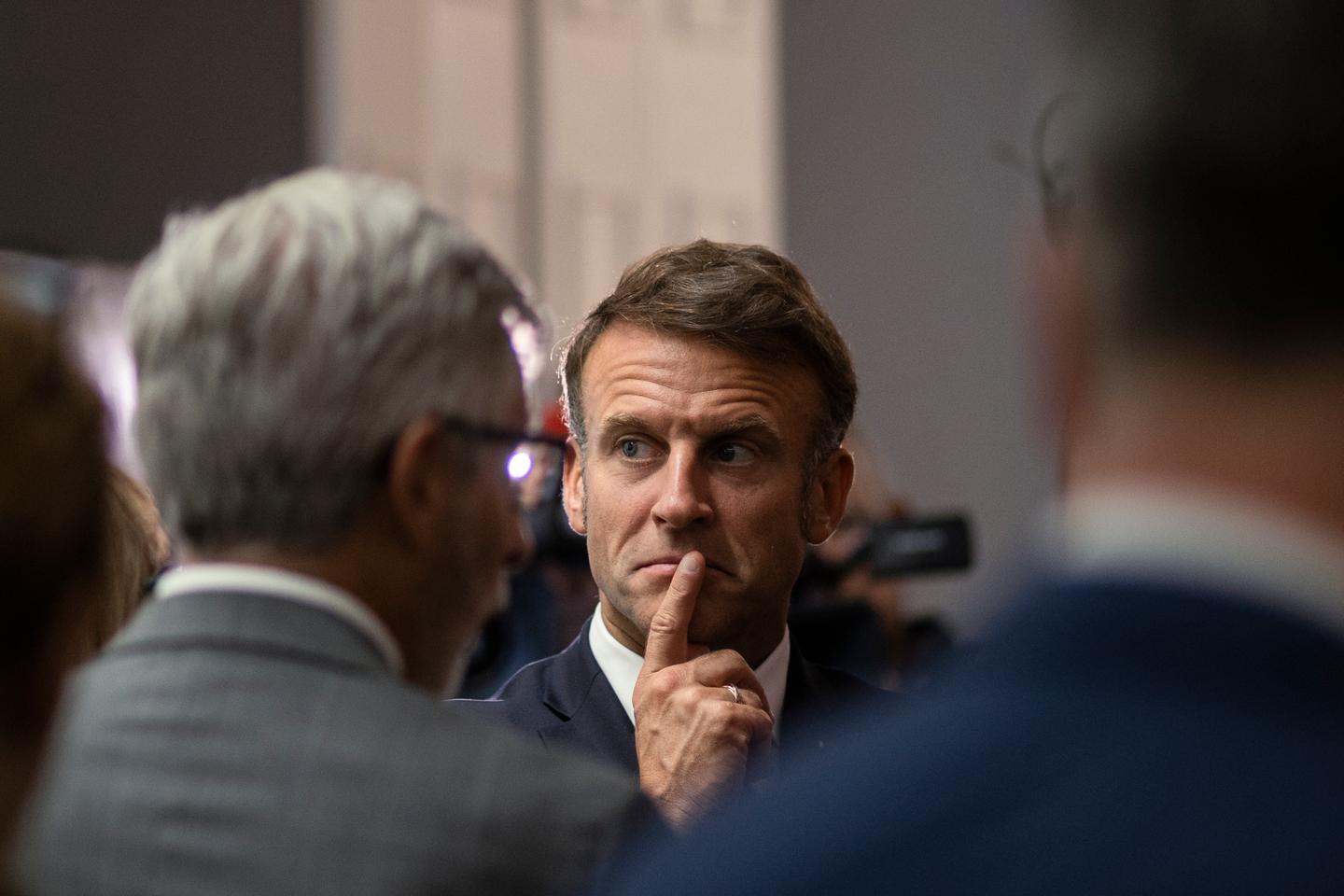


French President Emmanuel Macron was to host former presidents Nicolas Sarkozy and François Hollande on Monday, September 2, as he weighed options for prime minister after inconclusive legislative elections, with one center-left figure the apparent front-runner.
Bernard Cazeneuve, a former leading Socialist who headed the government in the final months of Hollande's 2012-17 presidential term, also met Macron during the morning. Cazeneuve, 61, spent years as interior minister, including during the traumatic 2015 Paris attacks, and enjoys respect from across the political spectrum.
He was "not asking [for the job of prime minister] but would do it out of duty" if called upon, people in his circle said. Cazeneuve was "a responsible man of the left who would take into account the political but also the economic situation of the country," they added.
Any new prime minister must be able to survive a no-confidence vote in the Assemblée Nationale, split almost evenly between the Nouveau Front Populaire (NFP) alliance of left parties, Macron's centrist camp and the far-right Rassemblement National.
The left insists they have the right to form a government as the largest bloc to emerge from the July 7 elections – while still around 100 seats short of a majority of 289 in the 577-seat chamber. But Macron has refused for weeks to name their prime ministerial candidate, 37-year-old economist and civil servant Lucie Castets.
The president says the constitution demands he ensure "institutional stability" – something he believes would not be guaranteed if Castets was immediately ousted in a no-confidence vote. His opponents argue Macron is trying to limit the fallout from the massive drop in support voters inflicted, aiming to prevent the next government going back on reforms dear to his heart.
'We will vote no confidence'
Macron was able to put off naming a new prime minister over the summer break as the French public enjoyed a rare moment of shared enthusiasm around the Paris Olympics.
But an October 1 deadline is now looming for a new government to file a draft budget law for 2025 – something the caretaker administration under Gabriel Attal, in place since July, cannot do. Any government will need to reach out across party lines to pass legislation in the divided chamber.
Cazeneuve has earned support beyond the left by quitting the Parti Socialiste in 2022 when it first formed an alliance with the radical left party La France Insoumise (LFI) – as well as for his history of public service.
He is "one of those who seem to me capable of bringing people together beyond his own camp," Assemblée Nationale speaker Yael Braun-Pivet, a Macron supporter, told broadcaster France Inter Sunday.
Anne Hidalgo, the Socialist mayor of Paris, also called him "credible and serious" on Saturday. But the former PM "is not supported by any of the four left-wing parties in the country," LFI coordinator Manuel Bompard told news channel BFMTV.
"We will vote no confidence in any government not led by Lucie Castets," Bompard added. Today's NFP left alliance built itself around breaking with the policies of Hollande, who Bernard Cazeneuve served as prime minister.
Debt burden
Besides Cazeneuve and the two former presidents, Xavier Bertrand, a leading figure of the moderate right, is likewise expected at the Elysée in the afternoon. Macron is likely to hear from Sarkozy that he should name a prime minister from the rump of the once-dominant conservative Les Républicains party that he led to presidential victory in 2007.
"The center of gravity of French politics is on the right" after this year's election, he argued in the newspaper Le Figaro on Saturday.
But Les Républicains leaders have their eyes set on the next presidential race in 2027 and prefer to avoid staining their opposition image by joining a coalition government. As the posturing and positioning winds on, the clock is ticking on the 2025 budget.
With debts piling up to 110% of annual output, France has this year suffered a credit rating cut from Standard and Poor's in June and been told off by the European Commission for excessive deficits.
"No [future] government can spare itself from keeping up efforts to reduce the deficit" caretaker public finances minister Thomas Cazenave told daily Le Parisien's Sunday edition.
